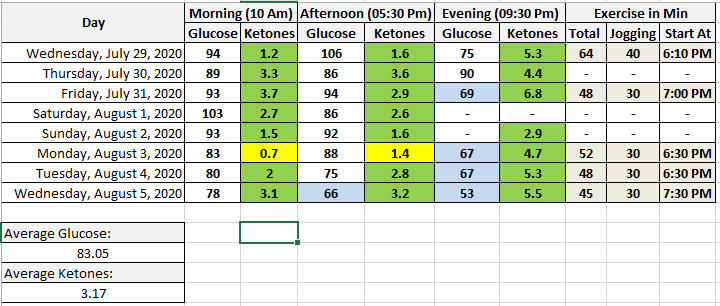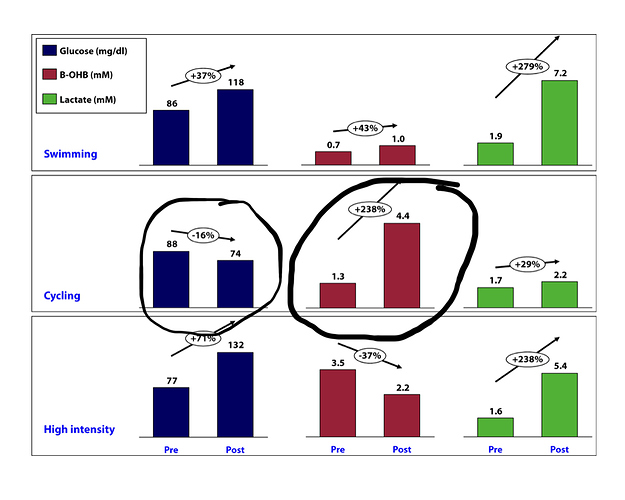Hey,
So I have done this diet/way of living for a month, Im really happy, because there are a lot of positive changes that Im feeling, but I want to ask something to the community.
So, Im feeling very, very, VERY satiated, to the point that… I dont even TMAD, It seems OMAD is the way to go due to the appetite suppression, maybe the suppression is because the glucose is low so insulin is low as fat does not increase insulin by much.
But then, I have been doing some ketones/BG measures, and it seems Im always Hypoglucemic (less tan 70). This was the best week in BG/Ketone relation (I would think):
Every time I do exercise, I go hypoglucemic now. I take Organic ACV with mother after every meal, and 25g of CHO Total (12Gr Net CHO).
Have you people experienced this big appetite suppresion and Hypoglucemia? my BG measurer always go crazy telling me Im low on BG when Im 70 low, and my Ketones goes way up after exercise, but during some days it will also go to 4.
Best Regards



